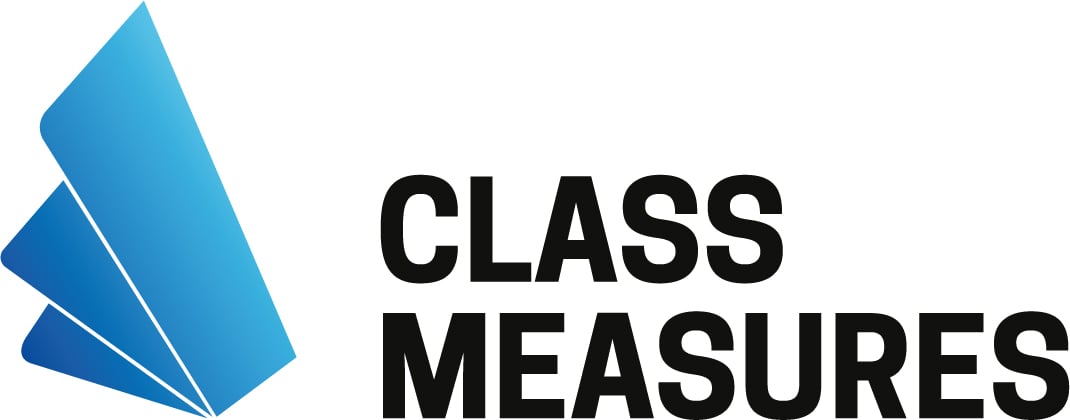Meridian Middle School in Kent Public Schools District is in a suburban area with an increasingly diverse population and has recently become a Title 1 school – 60% of students are on free/reduced lunch, and ethnically, the diversity among the student body has increased significantly over the past five years. Like many schools, this, combined with the fact that there is a much higher migrant and special Ed population, has necessitated a change in the way teachers at Meridian approach their teaching practice in order to match the changing student needs. We hear from building-based Instructional Coach, Carrie Howell, as she takes us through the essential and unique work Class Measures has done with the school to support teachers and significantly move forwards the quality of instruction to address those changing student needs.
A different approach to school review
Meridian itself first engaged with Class Measures in 2016, and have continued to work with the team to devise and implement a range of continuous school improvement strategies. In the 2019-2020 academic year, shortly prior to Carrie joining the school, Class Measures conducted a Comprehensive School Quality Review (CSQR), a process the school was by then very familiar with, and which highlighted the school’s strengths and needs, whilst also setting goals for the forthcoming years. For Carrie, the output of the CSQR was particularly beneficial.
“Coming in as a new instructional coach to the building, the CSQR report was one of the first things that the administrators gave me, because not only did it tell me exactly what the school was like, but it also laid out incredibly clearly what the instructional goals and needs were for Meridian.”
Carrie now also has first-hand experience of the Class Measures CSQR herself, having been through it last year with the school, and she notes some marked and fundamental differences to the sort of reviews she has experienced in previous schools.
“There's a lot of audits that happen where outside Consultants come in - they do the research, they have their notebooks, they walk around and then they give you a report. But you're not a part of it – you are merely observed. So, what I really appreciate about the Class Measures CSQR is that they are not doing it to you; they're learning with you, and that makes the goals that much more meaningful to teachers and students. So, that helped me a lot in my instructional role, and helps staff, admin and the community better work together to achieve those goals.”
[ More about collaborative Quality Reviews driving school improvement ]
Tackling issues around diversity, equity and inclusion
When it comes to building the school’s capacity to engage more authentically around diversity, equity and inclusion, Carrie is in no doubt about what the Class Measures team brought to the table.
“Absolutely they helped. It was one of their biggest findings and was central to much of our focus.”
At the time of Carrie’s arrival there was a particular trend/focus to ‘up the rigor’ of instruction. What the CSQR revealed was that as the school became more diverse, teachers’ standards tended to lower teachers attributed this decrease in rigor to a desire to ensure students didn’t fail. However, it also reflected a core belief in the potential of students that required direct and honest work. The CSQR enabled various members of the Meridian staff to take a step back and see that students were not being adequately challenged to do grade-level work, which raised the question, “How do we have both academic and intellectual rigor, and support this population that requires different supports?”
It’s a challenge faced by many districts around the country where their student demographics are changing faster than ever. Rising costs mean there are more people moving out of the cities and into the suburban districts, and teachers at schools like Meridian are not all necessarily equipped or experienced enough to differentiate their practice to serve all students.
This can often be exacerbated by lack of diversity in schools’ staff, because it limits the lived experiences that teachers can draw upon, something that had been the case at Meridian. Just one of the reasons the school’s work with Class Measures was so impactful was the fact that the consultants helped the leaders, that had already acknowledged this inequity, highlight and convey this effectively to the staff, and driving home the reality of the situation with real-time data that spoke not just to student performance, but to the conditions for learning that were and were not in place across the school. All too often it is very difficult, as well as inconvenient, to pull staff from teaching to take a step back to objectively review what is happening in school, but the bravery of the leaders at Meridian, and the collaborative CSQR approach adopted by Class Measures consultants enabled this to happen, the result being the widespread acceptance of a lack of instruction taking place.
“To have an experienced facilitator, who really has a good lens, walk you through this process, is invaluable. And what was really beneficial for both of the leaders was that they could participate in the process as learners themselves, in a way that they couldn't, if they were just handing it down to staff and saying, “Look at our numbers, look at how badly our kids are testing; there' are equity issues - fix it. That outside lens, expertise and voice really helped with buy-in across the school.”
[ More about optimizing the impact of English Learner strategies ]
Developing meaningful goals and effective Professional Development
Some key goals the team developed were specific to the school’s most impacted populations of black students, multilingual students, with those with IEPs, where it was consistently observed they were not making gains. The team also established plans to address issues around inclusion and an absence of co-teaching, to good effect.
“Our black students have now progressed to a point where they're growing at the same rate as the rest of the school, which still isn't great of course, but it's at least not inequitable. So, we made some real gains there, which is wonderful, and we hope to replicate that progress for our multilingual students and students with IEPs.”
Another key area where Class Measures support yielded obvious returns was that of the Professional Development plan, where Carrie and the consultants focused on developing appropriate scaffolds and supports in order to raise the bar and the rigour around teaching and learning.
Through her own coaching sessions with the Class Measures consultant, Carrie was able to tap into expertise around not just designing and developing Professional Development, but also tracking its effectiveness. By tracking staff attitudes towards PD, perceptions around their own ability to scaffold, and how they viewed their capabilities in certain areas, Carrie was able to understand where staff were with PD, and establish action plans to move PD and staff’s instruction forwards.
[ Expert article “The Importance of Coaching for Leadership Development” ]
Developing effective observation techniques
Another key specialism Class Measures often brings to the table is that of observation cycles, where the discipline of Effective Learning Observation (ELO) forms a critical and impactful component of school improvement measures. ELO is built on the premise that the primary evidence for the quality of teaching is the impact it has on the outcomes for the learners in terms of their progress, achievement, personal development, and well-being. It helps foster teacher and staff ownership of a collaborative school culture through teacher reflection on learning.
ELO provides a proven mechanism to facilitate collaborative feedback based on observations around which students are learning most effectively and why, and conversely where learning is not happening and why. This shift from observing the teacher to observing the students has helped Meridian capitalize on teachers’ propensity to listen to each other. And in doing so, the school is now able to provide more equitable instruction and promote equal access to learning.
“What was great about Class Measures, and Amber (Lead Consultant) specifically, was she got to know me very quickly and could name my strengths. She didn’t spend time coaching me on ELO set-up, but instead focused on the nuanced process of giving feedback in ELOs. With her help, I designed the required PD, using Class Measures’ video resources, and was then able to lead on ELO professional development in the school. The videos meant teachers could actually practise before we started carrying out ELOs in classes. The result was they were incredibly effective – of all the work we’ve done with Class Measures, I think that process has had the most impact on Meridian in terms of teacher instruction and students’ learning.”
Through such reflection, teachers are able to see, for example, where they might need to provide more support for their multilingual students because the ELO process has highlighted how those students seem as though they are really confused during lectures.
“I think it’s in those moments where we see the greatest impacts on equity, because if you tell someone they’re ignoring the black students, then they’re likely to get defensive or shut down. But if you say “Learning could have been better for this student” it gives them the opportunity to consider whether or not there is bias there, and if they address that absence of learning for that one student, could that same change-up in instruction help other students that might be getting left out. So, it really works on an inclusion level; it really works on instructional quality level.”
[More about Effective Learning observation and its impact on schools]
A different school
Identifying pockets of strong practise is of course beneficial, but systemizing that and sharing it effectively is essential to leveraging impact from those good examples. In this respect, the culture amongst staff at the school has moved on, as Carrie explains.
“The school definitely feels different now - I think that there's an awareness that exists among the staff about the work that needs to be done. And I think there's also an appreciation that that work is hard and there's no panacea – it’s a collective effort, something we really have to do together. Class Measures helped us address that kind of evolution, that progression.”
This direction of travel for Meridian aligns well with the district too as it evolves its own focus on growth in teaching and learning. Part of that shift is an acknowledgement that it isn’t enough to look at test scores as the only piece of data, but rather to combine this with capturing and measuring anecdotal data too. Obtaining that full picture and context helps schools like Meridian change the narrative and put into place the measures and practises that lead to sustainable school improvement, for all their student populations. The structural and systemic changes developed and implemented by Class Measures at Meridian Middle School is evidently helping their teachers and students shine; the fact that this has been done with, and not to, staff and leadership, lends itself to more sustainable improvements as those involved are more invested in the processes, and the subsequent successes.
“The work with Class Measures always felt like it very much honored me, and honored the school - I never felt judged. Their approach is extremely human, a characteristic that shouldn’t be overlooked. There are a lot of consulting firms that feel very sterile, but Class Measures don’t just deal in the numbers and data – their different approach actively encourages and supports the humanity that is so inherent in this role, in teaching and in schools. They acknowledge that, help you work with it, but then help you move forwards. And that's really important to add – I love that about Class Measures.”


